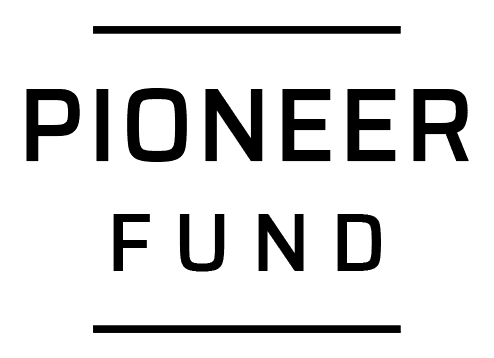Startup Spotlight: Ultrahuman

I caught up with co-founders Mohit and Vatsal of Ultrahuman - one of the biggest innovators in the world in the space of Metabolic Fitness. They've known each other for over 16 years and have built a hugely successful last mile logistics company which grew to employ over 500,000 people. They're an exceptional team and it was great to understand more about how they're looking to combine different biomarkers today.
Vatsal and Mohit have known each other for over 16 years. Before Ultrahuman they founded the last mile logistics platform, Runrr.
They studied engineering together and initially weren't that close to health or fitness. All they could think about was computers, and how they could be used to change the world.
They eventually founded a business together, Runrr which grew to be hugely successful and ended up employing over 500,000 people, impacting the lives of so many people and families. For seven years they built it up and learnt a lot along the way eventually seeing it acquired by Zomato.
One of the biggest challenges was supply in the market - delivery drivers.
They found they had a very high churn rate initially. Given their delivery team would be on the bike for 8–10 hours per day this was a real challenge. If they could improve delivery efficiency, they could fight this problem.
So they re-positioned the delivery driver role as a part time gig for students, to help them pay tuition fees. They took a lot of time to understand network effects and realised the importance of achieving density in each locale.
There was an expectation that they would be required to cross "a mountain of cash before making a business out of it". In the beginning they concentrated on extremely dense areas and city areas before moving to more rural domains.
Differentiation came through making the delivery experience for the driver as seamless as possible.
It was essential that the delivery driver would not have to go anywhere to collect money, that they could complete training on their smartphone and essentially earn money instantly. They didn't want their drivers to have to give up their current jobs and they were one of the first businesses in the space to offer flexible per order payouts. This was a huge win for them.
They employed a lot of people on their platform who had free time in the evenings and were able to make a few deliveries per day.
Defining the culture for such a large company was a huge challenge
Little things worked and didn't work. What worked well was that with so many drivers on the platform they could convey a clear message of supporting communities and families. They also realised that having a lean team structure worked well.
They exited to one of the biggest companies in their space after defining their "surviving forever" mindset
After they had transitioned to a lean organisation, they then spent a lot of time selling the business. By setting up the structure of the business around this mindset of "surviving forever" they were able to market their business very effectively. When they were approached by Zomato, the founders recognised that their journey was very similar. What started off as an integration partnership shifted into a merger.
They decided the exit made sense given the strong synergies on offer
As founders, their natural reaction was to not sell and they had just arrived at the mindset that they would build forever. But at the same time they saw it as an amazing opportunity to scale the business, they knew that combining with Zomato would lead to huge growth. And it did - transactions grew from 1 million to over 60 million per month.
Afterwards, both founders went on their own personal fitness journeys whilst constantly thinking of new ideas
Mohit went on a personal fitness and wellness journey getting into Muay Thai at the Tiger Muay Thai Martial Arts camp. He would wake up and train for 6–7 hours, enjoying a deeply integrated martial arts experience. All the time he was asking himself how he could use data to refine this experience.
Meanwhile, Vatsal was really into Crossfit and thinking of similar ideas and they saw a natural synergy to do something in sports and health.
The first step that they took was to test different biomarkers.
They were initially very excited by the HRV biomarker. Then they looked at sleep and sleep zones and how it relates to cognitive ability and performance. Finally, they thought about how skin temperature, glucose and insulin interact in the body.
They realised that they could make health really interesting and give people feedback on their food. The simple truth is that everybody eats! If wearables can be used to advise people on how to eat, and what to eat, they could build something for everybody.
One of the main drivers for Ultrahuman is that they found the ‘healthy' tag for food is abused in supermarkets
Almost 40% of the foods in the snack section have a healthy tag, including some snacks that are blatantly candy. This makes it extremely difficult for anybody who has good intentions to eat healthy food to actually find the right food for them. Going off the labels will not help. So people need to instead look at their own response to food to understand how their body reacts to it. A lot of myths are busted over time and how your body reacts to food is unique to each individual.
For example if you're active and exercise regularly then eating high-carb meals can be important, energy is needed.
There's a balance that everyone is looking for, and it can't be found on a blog post. We need to look at how our body responds to food on a first principles basis.
Ultrahuman today uses the Terra integration to inform its users how their glucose responds to food, exercise, stress, and sleep and has correlations with many key biomarkers.
By looking at how different biomarkers interact, Ultrahuman is able to go deep into correlating glucose responses to different metrics. The next step is to see what other interactions can be built using other devices, for example looking at how food and light intensity signal to the body when we should be awake or asleep.
Ultrahuman is also planning to launch its own hardware to look at other biomarkers different from the existing ones in the market today.
They see making recommendations based on glucose as more nuanced than saying "X food is good for you and Y is bad for you". Instead, glucose recommendations can be tailored based on what you're trying to target - for example is athletic performance the goal, what about focus? or longevity? The goal will determine what the recommendations are.
The combination of different metrics and biomarkers is significantly more powerful than individual metrics alone
Prior to organisations like Ultrahuman, the problem with data was that there is no actionability to it. Having heart-rate as a datastream is not useful, you need to build something on top of it and see how it interacts with other biomarkers.
"This is the biggest revolution in lifestyle medicine since the dawn of medicine itself"
A few years ago in order to prove a correlation you needed to do it in a lab environment and then come up with a theory to explain the outcome. This process would take years. However today with millions of people around the world using wearables its possible to run the largest health-data science tests ever.
Furthermore, real-time data brings you really close to the problem itself, you can consciously respond to things live when you see the impact. It's very impactful and will shape the future of preventative healthcare.
Ultrahuman has raised more than $25 million dollars over multiple funding rounds
One of the most useful tools that Ultrahuman utilised for proof of concept was their waiting list. Today they have more than 50,000 people waiting to use their product and its growing by up to 5,000 people per week.
The reality is that today everybody is talking about health in an extremely open way. People are interested in looking at how their body responds to different things. So if health is made easy for people understand and improve then it won't just be a few biohackers and nerds that use the product, everybody eats and almost everyone wants to live with a better quality of life, and this will improve it.
In the next five years Ultrahuman aims to have developed the most sophisticated health recommendation engine in the world with the largest.
Ultrahuman also gave us a hint of the biomarkers they're looking to measure - a recovery biomarkers that looks at temperature and HRV
This new readiness algorithm will be brought to the market to understand how people perform from a glucose response perspective too. There are some other experimental biomarkers that they're looking at too. For example, a measure of light exposure - if users can see a correlation between blue light exposure, sleep quality and stress levels, then they can make better decisions around it.
In the next year, Ultrahuman will launch the hardware they've been building and maintain focus on their community of ‘cyborgs'
They're aiming to push real-time data to their community of users. They'll focus on their group of 100,000 revolutionary cyborgs and continue to refine their product for this group until it's ready to support millions of people.





